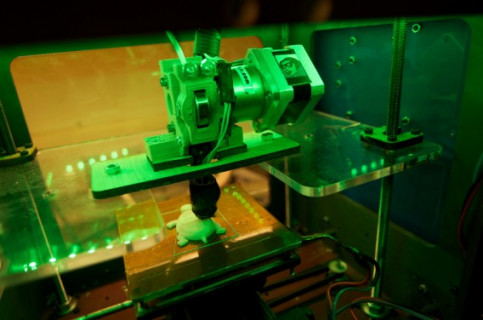Circular supply chain for the city - AMS Stimulus project

What is the goal of the project?
Given that more than half the world's population lives in cities, the need to produce everyday products locally is becoming more urgent by the day. 3D printing is an ideal part of the new decentralised production processes and can catalyse the circular economy in the coming years. However, print materials are currently imported and based via the traditional (bio) plastics industry, with an unknown source, undesirable transport and ever increasing quantities of emissions. The consortium proposes a different approach based on encouraging the local growth and development of bio-based materials which can then be used to design and print household materials for objects. The basis for the proposed biomaterial is seaweed biomass.
What is the result of the project?
Salga Seaweeds is going to cultivate seaweed sustainably in the port. The biomass will be developed into 3D printing filaments by the partner in the project, WUR Food & Biobased Research. Studio Eric Klarenbeek, another member of this consortium, is contributing with its extensive 3D printing experience and design. In short, the project will provide a complete local and circular supply chain for the manufacture of products with new technologies.
Who initiated the project and which organizations are involved?
AMS institute, Salga Seaweeds & Studio Eric Klarenbeek
What is the next step?
The final results of the project will be a demonstration of end-‐‑to-‐‑end production from plants to biopolymer to product.
The specific deliverables before september 2017 are:
- 100kg of Amsterdam-‐‑grown seaweed biomass.
- 50m of biopolymer filaments.
- 1 demo setup.
- 1 3D printed design product.




